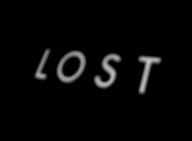The Unsolved Mysteries of “Unsolved Mysteries”
 (Part 2 of 2) I fully expect that we will get some resolution to several important plot threads in Lost’s finale tonight, particularly matters that have been developed over the last season and Season 5’s finale: what “sideways world” is, what Desmond is up to, how MIB is going to be defeated, what happens to the remaining main characters, what Jack’s nuclear bomb explosion did, and perhaps more about what the Island is/does. The head writers have said that they don’t intend a Sopranos-style fade to black. Whether the resolution is fulfilling or not is a separate issue, but my guess is that I’ll like it.
(Part 2 of 2) I fully expect that we will get some resolution to several important plot threads in Lost’s finale tonight, particularly matters that have been developed over the last season and Season 5’s finale: what “sideways world” is, what Desmond is up to, how MIB is going to be defeated, what happens to the remaining main characters, what Jack’s nuclear bomb explosion did, and perhaps more about what the Island is/does. The head writers have said that they don’t intend a Sopranos-style fade to black. Whether the resolution is fulfilling or not is a separate issue, but my guess is that I’ll like it.
But I also expect, just because there is limited time, that several key elements of the plot from past seasons are going to be simply dropped. I don’t mean comparatively trivial items like why Libby was in Hurley’s mental institution or where the polar bears came from. I mean crucial components of the plot from one or more seasons are going to get left behind like jettisoned cargo. Here’s my top 4.
